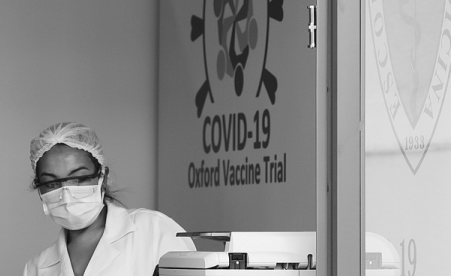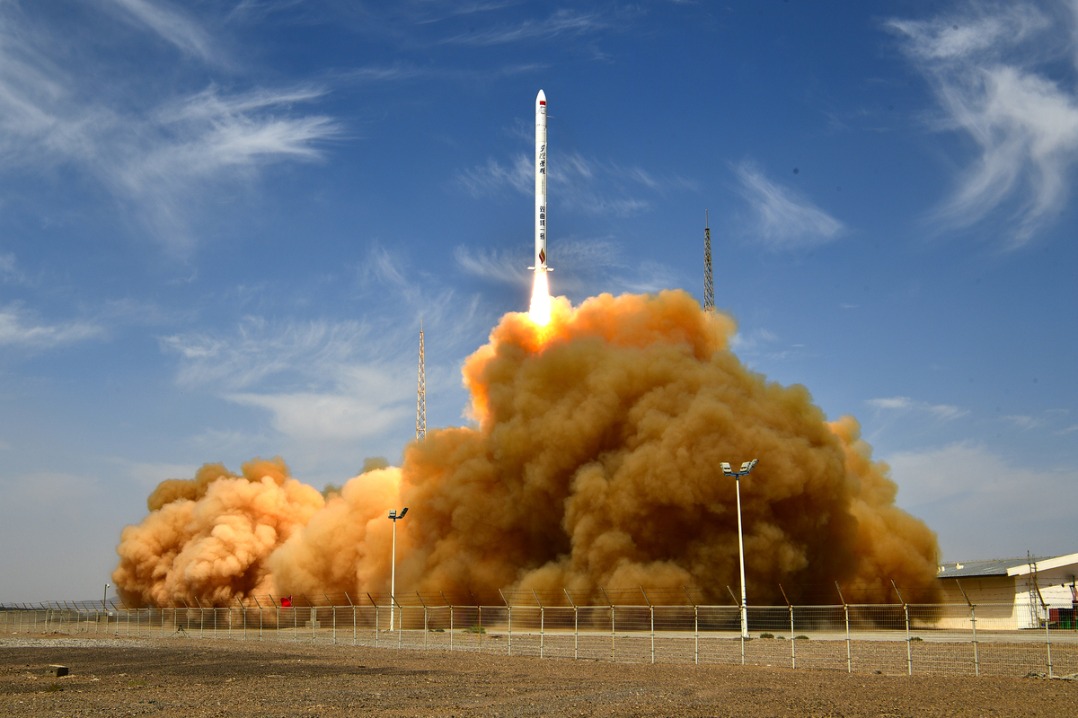Oxford candidate enters late-stage clinical trials

Late-stage clinical trials for the so-called Oxford vaccine have begun in the United States, and developers say the first results determining the efficacy of this promising COVID-19 inoculation candidate can be expected this year.
Oxford University and development partner AstraZeneca, which is a pharmaceutical company based in Cambridge, England, confirmed that the first of 30,000 volunteers received doses in the US this week. The study is double-blind, so volunteers and healthcare professionals will not know if an injection contains a placebo or AZD1222, which is commonly referred to as the Oxford vaccine and that was formerly known as ChAdOx1 nCoV-19.
The US-based study joins three other Phase III trials taking place for this vaccine: in the United Kingdom, Brazil, and South Africa.
The Oxford vaccine is among the front-runners in the race to produce effective protection against novel coronavirus infection, having elicited a strong immune response in Phase I and II trials that concluded in July, according to results published in the medical journal The Lancet.
Of at least 90 COVID-19 vaccine candidates in development around the world, fewer than a dozen have reached Phase III clinical trials.
Oxford University said further human trials may soon take place, in Chile and Peru.
"Oxford and AstraZeneca are collaborating with clinical partners around the world as part of a global clinical program to trial the Oxford vaccine," said Andrew Pollard, director of the Oxford Vaccine Group."This latest trial in the US, led by AstraZeneca, will expand our safety database further and will help to provide the possibility of an earlier understanding of whether the vaccine can prevent infection."
Phase III trials could return results toward the end of this year, Oxford University said. Places with high infection rates will produce results sooner, as a sufficient number of volunteers must come into contact with the virus before a trial is concluded. This means that results from the UK trial may lag behind those that started later, since lockdown measures in Britain have slowed the virus spread.
Supply deals
AstraZeneca has signed supply deals with numerous nations for the vaccine, including populous countries such as Russia, Brazil and Japan. The European Commission confirmed last week it had signed a contract worth 336 million euros ($398 million) that guarantees at least 300 million doses for European Union countries, with an option for a further 100 million.
In early August, the company announced a partnership with Shenzhen Kangtai Biological Products in which the Chinese vaccine maker has agreed to achieve annual production capacity of at least 100 million doses in the Chinese mainland starting this year.

Today's Top News
- China and US agree to extend tariff rates after two day talks in Stockholm
- US, China trade talks candid, in-depth, constructive, says China intl trade representative
- China unveils delegation for Chengdu World Games
- Xi urges youths to champion vision of peace
- All-out relief efforts underway in flood-hit regions
- Crucial to foster stable China-ROK ties: China Daily editorial






























